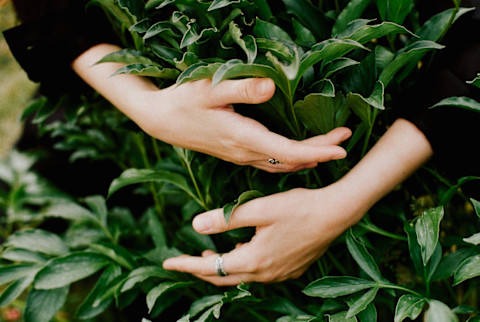Your Gut Needs More Dirt: The Science Behind Microbiome Diversity & Immune Health

When was the last time you embraced a little dirt under your nails or felt the soil beneath your feet? As odd as it sounds, exposure to nature—and even a bit of dirt—might be just what your immune system and microbiome are craving.
In conversations with microbiome expert Charles Akle, M.D., reveal fascinating insights into the role of our environment in gut health, autoimmune disease, and stress resilience.
Here's what the science says about reconnecting with our roots—literally—and why a little grime might go a long way.
The diversity of your microbiome
Charles Akle describes the gut microbiome as an orchestra, with each microorganism playing a unique instrument to create harmony. This harmony—rooted in diversity—is essential for a well-regulated immune system. Akle explains, "Your microbiome is like a fingerprint, with 40,000 to 50,000 different organisms. This diversity is what keeps our immune system balanced and resilient."
Shockingly, only 3% of microbiome diversity comes from our diet1 as adults, with the remaining 97% influenced by environmental factors such as exposure to soil, animals, and natural ecosystems. This shows just how important our environment is.
The hygiene hypothesis
The modern obsession with cleanliness may be costing us our health. The hygiene hypothesis, introduced decades ago, suggests that reduced exposure to microbes—thanks to urbanization, industrial farming, and antiseptic lifestyles—has weakened our immune systems2, leading to a rise in autoimmune and allergic conditions.
Akle emphasizes, "Communities with higher exposure to natural environments—whether through rural living or interaction with animals—experience far lower rates of asthma, eczema, and autoimmune diseases."
For instance, a fascinating study3 comparing Amish and Hutterite children found that Amish kids, who grow up in traditional farming environments, had asthma rates four to six times lower than their industrialized farming counterparts. The secret? Higher microbial exposure through dust and dirt.
Autoimmune diseases are on the rise—here's why
Autoimmune diseases have skyrocketed, affecting approximately 50 million Americans. Even more concerning, their prevalence is increasing by 3–12% annually, making them an emerging epidemic. Researchers believe this rise is linked to environmental changes that disrupt the gut microbiome, such as decreased exposure to beneficial microbes.
The Old Friends Hypothesis builds on the hygiene hypothesis, suggesting that exposure to certain microbes—like mycobacteria found in soil—helps "train" the immune system to distinguish between harmful and harmless invaders. Without this early exposure, immune systems can become hyperactive, attacking the body's own tissues.
Nature: The ultimate stress reliever
Your gut isn't the only thing benefiting from a connection with the natural world. Studies also show that nature and animal exposure can regulate the immune system and reduce stress.
For instance, young adults raised in rural areas with regular animal contact showed a reduced immune response to social stress compared to urban participants without animal exposure. Urban participants exhibited higher levels of IL-6, an inflammatory marker associated with stress and mental health disorders.
Interestingly, while rural participants reported feeling more anxious during stress tests, their physiological responses were far less pronounced, suggesting a deeper resilience rooted in their upbringing.
What this means for you
So, what can you do to embrace the dirt (without going overboard)? Here are some actionable steps:
- Get outside: Spend time in parks, forests, or gardens to boost your microbial exposure.
- Interact with animals: Pets aren't just great companions—they can also help build immune resilience.
- Embrace the mess: A little dirt won't hurt. In fact, it might make your microbiome stronger.
- Rethink urban life: If you live in a city, seek out nature-rich spaces to counterbalance the effects of urbanization.
The takeaway
By reconnecting with nature, we're not just nurturing our gut health—we're building stronger immune systems, reducing stress, and potentially reversing alarming trends in autoimmune and allergic diseases. As Akle explains, dirt is good for you!
So, let's give our immune systems the diversity they deserve—starting with a little mud between our toes.
